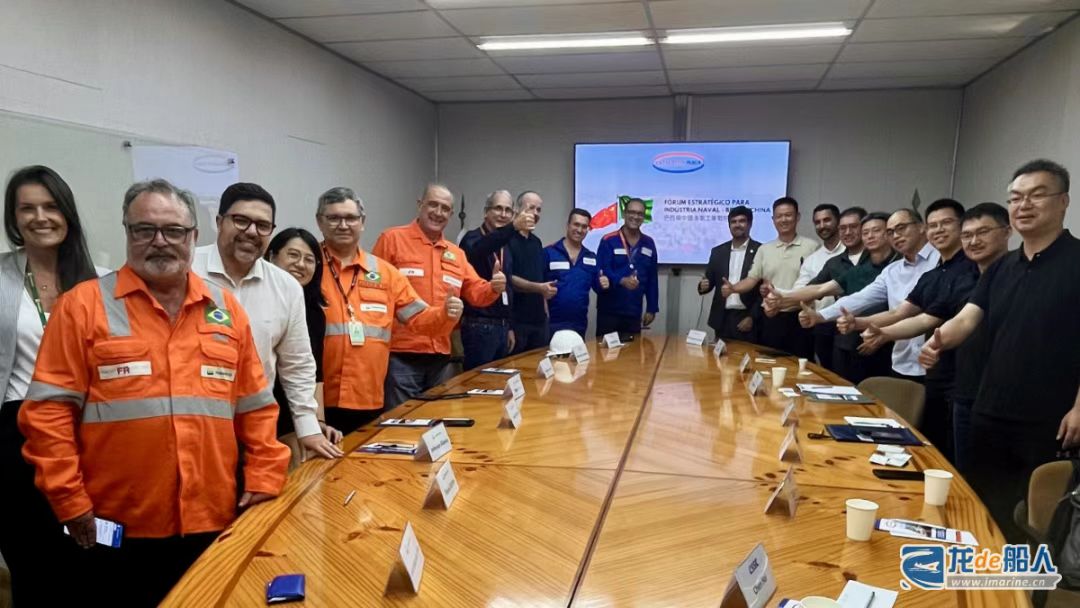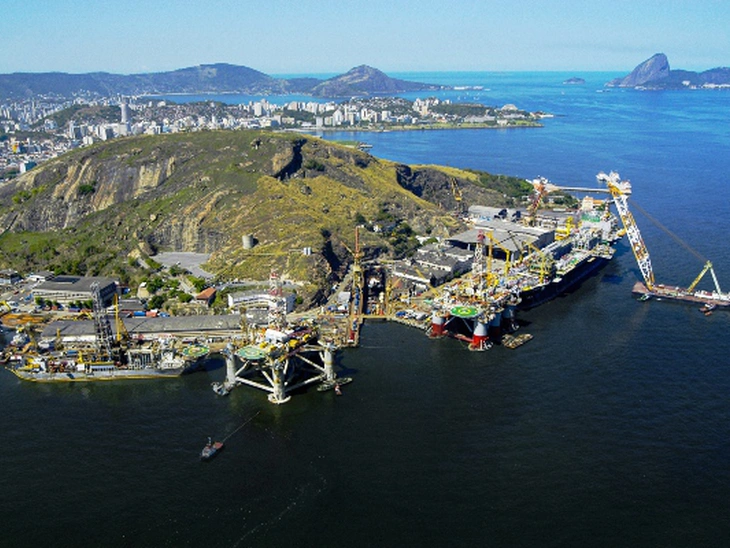Brazil and China have made great progress in shipbuilding cooperation. The cooperation between Chinese and Brazilian shipbuilders will support the offshore supply vessel (OSV) and tanker newbuilding plan under the Petrobras System Fleet Renewal and Expansion Program.

Recently, Brazilian and Chinese shipbuilding companies signed a memorandum of understanding at a shipbuilding industry strategy forum held in Rio de Janeiro, Brazil, to establish technical and commercial partnerships. This cooperation is a follow-up to Brazilian President Lula’s state visit to China in May.
The forum was attended by Alexandre Silveira, Minister of Mines and Energy of Brazil, Magda Chambriard, President of Brazilian state-owned enterprise Petrobras, Renata Baruzzi, Director of Engineering Technology and Innovation, and Sérgio Bacci, President of Brazilian National Petroleum Transportation Company (Transpetro).
The memorandum was signed by major Chinese shipbuilding companies China Offshore Oil Engineering Company (COOEC), China State Shipbuilding Corporation (CSSC), China Ocean Shipping(Group) Company, China International Marine Containers (CIMC) and Brazilian shipbuilding companies EBR, Rio Grande, Mauá, and Enseada.
During the meeting between representatives of Chinese and Brazilian shipbuilding companies, the two sides discussed common interests, explored possibilities for future cooperation, and the operating mechanisms of Brazil’s shipbuilding content policy, the Package of Incentives for Investments in National Industry (PDIC) and the Merchant Marine Fund (FMM).
During the forum, Petrobras and Transpetro proposed huge new shipbuilding demand for OSVs, MR1 product tankers, liquefied natural gas (LNG) carriers and floating production storage and offloading vessels (FPSO) in the next five years.

Establishing technical and commercial partnerships with Chinese shipbuilding companies will be a major boon for Brazilian shipyards. Brazilian shipyards will participate in Petrobras and Transpetro’s large-scale fleet renewal plans, which require 50% participation from local Brazilian shipyards.
Sérgio Bacci, President of Transpetro, said: “The documents signed by the two shipyards highlight a new phase for the Brazilian shipbuilding industry, which is resuming operations and can work towards long-term needs. Petrobras’ Systematic Fleet Renewal and Expansion Plan will ensure medium- and long-term planning for the shipbuilding industry and promote recovery. Establishing a partnership with China, the most advanced shipbuilding country in the world, will allow the Brazilian shipbuilding industry to access new technologies and even potentially obtain new orders, which can be shared with Chinese shipyards.”
Given Petrobras’ huge shipbuilding needs, Renata Baruzzi, Director of Engineering Technology and Innovation at Petrobras, said: “For Petrobras, it is crucial that the Brazilian shipbuilding industry recovers its production capacity and expands cooperation with the rest of the world. As one of the largest demanders of Brazilian shipyards and one of the largest contractors in the global shipbuilding and offshore engineering industries, having a strong domestic supplier market is essential for the effective implementation of the company’s projects. In addition, supporting the development of domestic industrial partnerships is one of Petrobras’ business objectives. Brazil will undoubtedly benefit from the dialogue between the two countries’ shipbuilders.”
According to reports, the Petrobras System Fleet Renewal and Expansion Program was launched in June 2024, with the first phase aiming to build 52 new OSVs by 2028. This initiative by Petrobras and Transpetro is expected to generate investments of up to approximately US$5.3 billion (approximately RMB 38 billion) in the current phase and create 50,000 new jobs.
The new shipbuilding program aims to reduce the Brazilian oil giant’s reliance on ship leasing and provide flexibility and efficiency for cargo handling logistics operations. At the same time, the new shipbuilding program will procure LNG carriers and MR1 product tankers for the Transpetro fleet, while equipping Petrobras with OSVs to meet its offshore oil and gas production needs.


